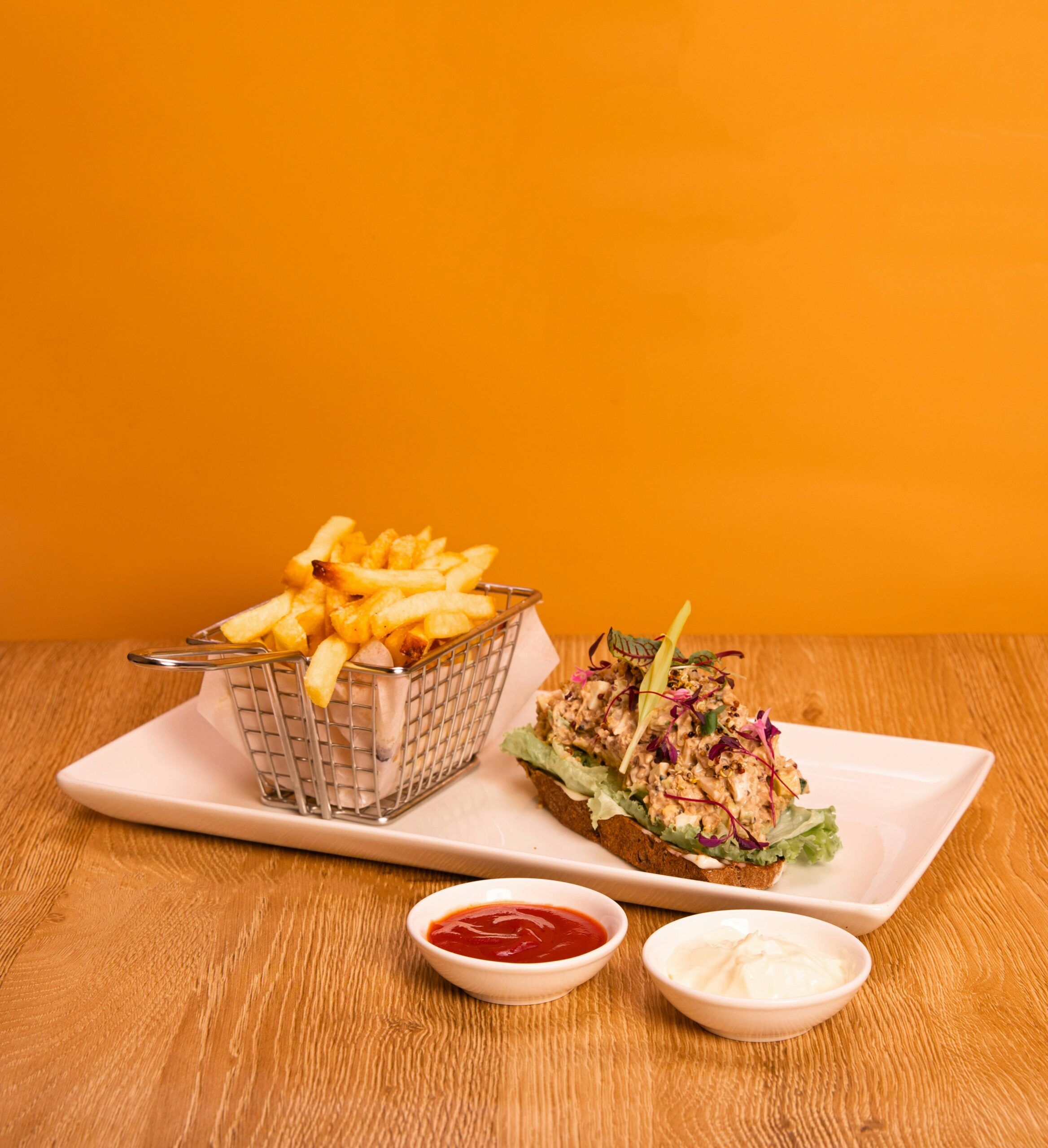- How Much Profit Does a Pizza Shop Owner Make?
- Tips for Increasing Pizzeria Income and Profitability
- Take Your Pizzeria to New Heights with Orders.co
Owning a pizza shop can be rewarding, but it’s important to understand how much profit you can actually make.
The average profit margin of a pizza shop is about 15%.
This means that for every $100 you make in sales, you keep $15 as profit.
In this blog, we will explain how to figure out the average pizza shop owner income and examine expenses. We will also share tips to help you increase your net profit.
How Much Profit Does a Pizza Shop Owner Make?
The average pizza shop owner income in the United States is between $60,000 to $150,000 per year.
The annual revenue range depends on various factors, such as the type of shop, its location, expenses, the level of food industry competition etc.
According to recent IBIS World data, there are about 73,000 pizza restaurants across the U.S. in 2023, showing just how popular this business is.
Why does income vary so much?
- Type of Pizzeria: Franchise pizza shops earn more than independent shops. This is because franchise shops benefit from brand recognition and a loyal customer base. Independent restaurants or shops, while free to innovate, might struggle initially to attract regular customers and establish a reputation.
- Location Matters: Pizza shops in busy urban areas tend to earn more than those in small towns. In cities, there are more potential customers and higher demand. This often leads to higher sales despite the higher fixed costs like rent. In contrast, pizza shops in smaller towns may have lower rent but also fewer customers and potentially lower sales.
- Quality and Variety of Pizzas: Offering high-quality ingredients and various pizza options can attract more customers. Shops known for their delicious and diverse menu often see higher sales and repeat business.
Operational Efficiency: Efficient operation management, including inventory, labor, and food costs, significantly impacts profitability. Shops that simplify their operations and minimize waste tend to have lower costs and higher profits.
Pricing Strategy: Implementing a well-thought-out pricing strategy that balances affordability with profit margin can influence income. Shops that correctly price their menu items to cover expenses remaining competitive in the market typically see better financial performance.
Hours of Operation: Longer operating hours can increase your pizzeria’s revenue by serving more customers. Pizza shops open during peak times, such as evenings and weekends, typically see higher sales.
Calculating Profits for a Pizzeria
To understand how the income numbers come together, let’s break down the calculation process.
First, you must forecast daily or monthly revenue (income) and expenses (costs).
Revenues: Revenues are generated from orders placed by customers.
Let’s say your shop receives an average of 100 orders daily, with an average order value of $20.
Revenue = 100 orders/day x $20/order = $2,000/day
This means your shop earns approximately $2,000 daily revenue from pizza sales.
Expenses: Expenses include all the costs associated with running the pizzeria, such as rent, utilities, ingredients, labor, and other operational costs.
Let’s assume your monthly expenses, including rent, utilities, ingredients, and labor, amount to $30,000.
Profit = ($2,000/day x 30 days) – $30,000 = $60,000 – $30,000 = $30,000
In this example, your monthly profit would be $30,000.
Key Factors Affecting Profitability
Several factors influence the profitability of a pizzeria. Let’s explore the most important ones.
- Operating Costs: Operating costs are the expenses required to keep your shop running.
- Fixed Expenses: These are expenses that remain constant each month, such as rent, utilities, and equipment maintenance. High fixed costs can eat into your profit margin, so it’s crucial to manage them effectively.
- Variable Costs: These costs can vary depending on your level of business activity. They include expenses like food costs (ingredients for your pizzas), labor, and supplies. You must keep these costs under control to maintain a healthy profit margin.
Here’s a breakdown of the average monthly expenses for a US-based pizzeria:
To make a profit of, for instance, $5,000 above the total expenses, you need to generate at least $22,500 – $32,500 per month.
Assuming an average order value of $20, you’ll need to process approximately 1125 to 1625 orders daily to achieve a monthly profit of $5,000 above total expenses.
Tips for Increasing Pizzeria Income and Profitability
Here are some practical tips to help you boost your income and profitability in your pizzeria.
Menu Optimization
- Make Smart Menu Design: Create a menu that features a mix of popular items and high-margin dishes. This strategy helps you maximize profits from each sale by encouraging customers to choose beloved and profitable items.
- Focus on Favorites: Identify the top-selling items that customers love and ensure they are profitable. If items on your menu don’t sell well or have low profit margins, consider removing them.
- Upselling and Cross-Selling: Train your staff to suggest complementary items to customers, such as drinks or desserts. This practice can increase the average transaction value by encouraging customers to add more to their orders.
Manage Your Menu Online with Orders.co
Given the increasing number of online orders, having an organized menu is a must for restaurants.
Managing your menu can be daunting, especially when dealing with different third-party apps that each have their own processes for updating menu items. With Orders.co, you can handle everything from a single device.
This all-in-one platform allows you to effortlessly add or remove items, change prices, update descriptions and images, and mark items as out of stock.
Plus, Orders.co offers AI-assisted tools for ingredient management and a description generator to help you create compelling menu descriptions effortlessly.
Offer Online Ordering
Make it easy for customers to order online directly from your website. You can make a custom ordering website with Orders.co.
It allows you to create your own branded, commission-free online ordering platform. This complements the use of third-party apps and increases your sales by providing a direct ordering option.
Besides using third-party apps, you can create your own customizable website with Orders.co.
This platform lets you sell directly to customers without commission fees, and you can attach loyalty programs to keep customers coming back.
The website allows you to send targeted text messages and emails, helping you manage and access your customer base effectively.
Sell By Slice
Some clients prefer individual slices. Expand choices for customers, increasing sales potential and catering to quick meal needs.
This strategy also helps pizza places manage inventory better, reducing waste and boosting profits.
Collaborate with Schools, Colleges, and Offices
Partner with educational institutions and workplaces for steady orders and exposure to large groups. You can secure reliable business and expand your customer reach by catering to school events or office meetings.
Use Loyalty Programs
Rewarding repeat customers with loyalty programs encourages them to return, boosting customer retention. This is one of the most significant approaches to making customers feel special and valued.
With Orders.co, you can easily implement AI-assisted loyalty programs that tailor rewards based on each customer’s behavior and order history.
This system sends targeted text messages and emails to remind customers about your pizza place, effectively increasing repeat orders and customer spending.
Using Orders.co’s loyalty program can significantly improve customer retention and increase overall profit margin.
Charge Higher for Specialty Pizzas
Reflect their premium quality and unique ingredients.
Customers are willing to pay more for these exclusive offerings, helping pizza places increase profits and meet customer demand for gourmet options.
Reduce Waste
Implementing strategies to minimize food waste helps you cut costs and improve profitability. Manage inventory efficiently and adopt sustainable practices, such as composting.
Train Your Employees
Ensure your staff can deliver excellent service and maintain quality standards. Well-trained staff contributes to a positive customer experience, driving satisfaction and loyalty.
Take Your Pizzeria to New Heights with Orders.co
So, if you’re considering opening a pizzeria or want to make your current pizza business more profitable, understanding the key factors impacting your income is crucial.
Your earnings as a pizza place owner depend on the business model you run, its location, and how effectively you manage your expenses and operations.
Hopefully, our tips on menu optimization, customer loyalty programs, and operational efficiency will help you increase your profit margins.
To make things even easier, consider using Orders.co. The all-in-one platform can help you manage online orders, update your menu, and simplify your operations.
Schedule a demo with Orders.co
We will show you how our solutions can help you optimize your pizzeria and increase profitability.



